Selective autophagy of BES1 mediated by DSK2 balances plant growth and survival
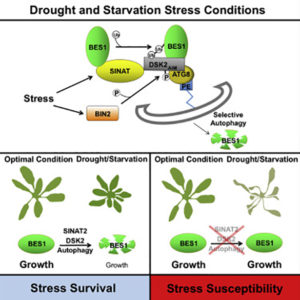 Brassinosteroid (BR) signaling promotes growth and development by regulating gene expression through the BES1 and BZR1 transcription factors. Nolan et al. show how plants balance growth and stress tolerance by cross-talk between the BR and autophagy pathways. Under environmental stresses, BES1 is targeted for autophagic degradation by direct interaction with the autophagy receptor protein DSK2. DSK2 is phosphorylated by BIN2 kinase, which is a negative regulator of BR signaling, and this phosphorylation enhances DSK2 interaction with the ATG8 autophagy protein. Under drought stress, atg7-2 and DSK RNAi plants show BES1 accumulation and a hypersensitive phenotype, which is supported by levels of differentially-expressed genes from RNA sequencing. Double DSK2 and BES1 RNAi plants have a restored drought survival phenotype and decreased BES1 protein levels. Under fixed-carbon starvation, the RING E3 ubiquitin ligase SINAT2 directly interacts with DSK2 for degrading BES1 10.1016/j.devcel.2017.03.013. In the same issue of Developmental Cell, Yang et al. report on interactions between SINAT proteins and BES1 10.1016/j.devcel.2017.03.014. (Summary by Daniel Czerny).
Brassinosteroid (BR) signaling promotes growth and development by regulating gene expression through the BES1 and BZR1 transcription factors. Nolan et al. show how plants balance growth and stress tolerance by cross-talk between the BR and autophagy pathways. Under environmental stresses, BES1 is targeted for autophagic degradation by direct interaction with the autophagy receptor protein DSK2. DSK2 is phosphorylated by BIN2 kinase, which is a negative regulator of BR signaling, and this phosphorylation enhances DSK2 interaction with the ATG8 autophagy protein. Under drought stress, atg7-2 and DSK RNAi plants show BES1 accumulation and a hypersensitive phenotype, which is supported by levels of differentially-expressed genes from RNA sequencing. Double DSK2 and BES1 RNAi plants have a restored drought survival phenotype and decreased BES1 protein levels. Under fixed-carbon starvation, the RING E3 ubiquitin ligase SINAT2 directly interacts with DSK2 for degrading BES1 10.1016/j.devcel.2017.03.013. In the same issue of Developmental Cell, Yang et al. report on interactions between SINAT proteins and BES1 10.1016/j.devcel.2017.03.014. (Summary by Daniel Czerny).


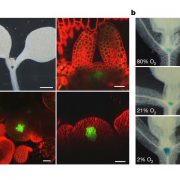
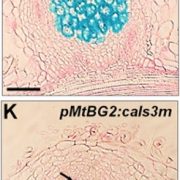
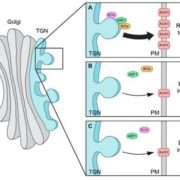
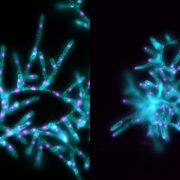
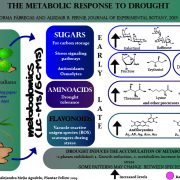
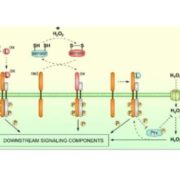


Leave a Reply
Want to join the discussion?Feel free to contribute!